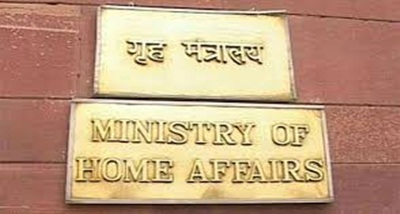‘Black Lists’ of Indian-origin people 14/05/2019 – Posted in: Daily News
‘Black Lists’ of Indian-origin people
For: Preliminary & Mains
Topics covered: Black List, Issue, New rules, OCI holder, Asylum and Asylum seeker
News Flash
The Ministry of Home Affairs announced that it has put an end to the local adverse lists. The list is commonly known as ‘Black Lists’ of Indian-origin people.
- List is maintained by Indian missions.
- The list is mostly comprised of the names of people belonging to the Sikh Community, who have taken asylum abroad under the plea of alleged persecution in India.
Issue
The Indian-origin asylees, were denied visa services by Indian missions and posts since they took asylum abroad under the plea of alleged persecution in India.
What’s MHA done now
- As per officials from the Home Ministry, all those presently in the blacklist, will be given regular visa as well as Overseas Citizen of India (OCI) cards.
- Also all those asylees and their family members who are not in the main adverse list of the government of India will be granted visa and consular services at par with foreigners of the country in which they are living.
- Such Indian-origin people, mostly Sikhs, can also get OCI cards if they have held normal Indian visas for at least two years.
Foreigners to be granted permits
- The ministry has also delegated to state governments and Foreigners Regional Registration Officers (FRROs) to grant permits to foreigners to visit protected and restricted areas in the country.
- The state governments and FRROs can now grant such permits even for non-tourism purposes and even in areas not opened for tourism purposes.
Restricted Area/ Special Permission required
Some parts of Northeastern states, Jammu and Kashmir, Himachal Pradesh and a few islands in the Andamans have been declared as protected and restricted areas and foreigners are required to take special permission to visit such places.
Overseas Citizenship of India
- The Overseas Citizenship of India (OCI) is an immigration status permitting a foreign citizen of Indian origin to live and work in the Republic of India indefinitely.
- The OCI was introduced in response to demands for dual citizenship by the Indian diaspora, particularly in developed countries.
- It was introduced by The Citizenship (Amendment) Act, 2005 in August 2005.
- It was launched during the Pravasi Bharatiya Divas convention held in Hyderabad in 2006.
Asylum
- Asylum, in international law is the protection granted by a state to a foreign citizen against his own state.
- The person for whom asylum is established has no legal right to demand it, and the sheltering state has no obligation to grant it.
- The right of asylum falls into three basic categories: territorial, extraterritorial, and neutral.
Asylum seeker
He/She is a person who flees their home country, enters another country and applies for asylum, i.e. the right to international protection, in this other country. An asylum seeker is a type of migrant and may be a refugee, a displaced person, but not an economic migrant.
Source: Business Today
You can follow us on LinkedIn and for more updates related to UPSC IAS Preparation, Like our Facebook Page and subscribe our Diligent IAS Youtube Channel
Also Read Related Daily News

